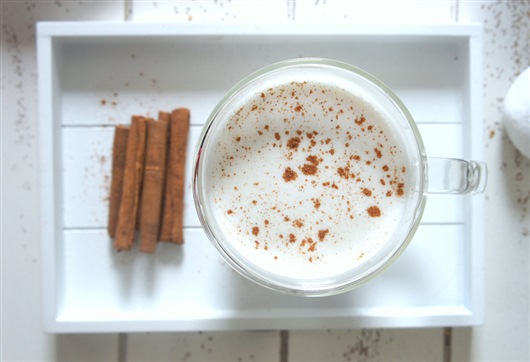Losing someone we care deeply about is not only emotionally devastating; physically, it can throw our body into turmoil, with lack of sleep, shock, and grief causing chaos with our appetite and digestion. Many people find it difficult to eat anything at all. And when you do eat, you may get heartburn, bloating or tummy upsets, such as diarrhoea. The dishes our well-meaning friends have prepared for us get picked at or thrown away while we're living on coffee and biscuits, wine and crisps.
The very thought of cooking can be difficult, especially if certain dishes are associated with the person who has died, or a recipe for two now needs to be made for one. Something that might help is to take favourite ingredients and use them in a different way. This way, they're reminiscent of the meals you shared with less of the emotional reactions that can come with recreating them. For example - a breakfast of frittata made with little cubes of bacon and tomatoes, instead of a Full English. Or perhaps a simple Bolognese sauce with pasta instead of a lasagne. And, rather than struggling to reduce recipes, you could cook meals as usual and use it as an opportunity to freeze portions and stock up for the days when preparing a meal feels too much.
If ever there was a time when we need food to nurture and support us, it's now, so we're as strong as possible to cope with all the difficult emotions that grief throws at us. Food doesn't need to be anything complicated or costly. Often what works best are simple, easy-to-digest foods which give us enough nourishment yet don't require much assembly. You could start with simple but substantial soups, like this chicken soup, which has a little kick of warming ginger in the broth. Rather than having a big pot left on the hob, freeze it in small batches, so that if you can't face the soup for the next few days, you have it ready to defrost when you feel like it. Apple puree is also very soothing, as apples contain pectin which helps to settle the gut. It's satisfying without feeling too much, so it's wonderful for breakfast, served with a full-fat Greek yoghurt, to set you up for the day.
If you like to eat bread, go for a slow fermentation sourdough as it can be easier to digest. It is also less likely to make you feel bloated and uncomfortable. You can freeze a sliced loaf, then just take out the amount you need. Crisp breads, particularly those made with rye and caraway, can be less stodgy and upsetting for the gut. Top toasted sourdough or crisp bread with a protein-rich topping - tinned fish like tuna or smoked mackerel mashed with yoghurt and mayonnaise (I'd do half and half, to make it easier to digest). Or add sliced egg, egg mayonnaise, or hummus.
Protein helps us to maintain our energy and blood sugar levels, which can feel very up and down when we're upset. Despite the desire for comfort, try not to turn to sweets, cakes and chocolates as they're full of refined sugar. Better to have a fruit-based sweet fix, such as a few sticky medjool dates or my instant banana ice cream, as the fibre in these slows the absorption of sugar into the body so you feel less 'hyper' after eating.
Finally, coffee can leave your gut feeling sore and acidic, so try herbal teas such as mild mint, fennel and liquorice. If you fancy a slight caffeine hit, then a classic black tea can hit the spot. I love to add traditional Indian spices for a homemade chai as I find it more soothing than straight black tea.
Homemade chai
Spicy and a little sweet, chai is comfort in a cup. You can froth the milk and add a sprinkle of cinnamon to turn it into a chai latte.
Serves 2
Cooking time: 5 minutes
Ingredients
1 teabag or tablespoon of loose black tea
6 cardamon pods
6 cloves
1cm fresh ginger, grated, or 1/2 teaspoon ground ginger
1 cinnamon stick
12 peppercorns
500ml boiling water
100ml milk
Sugar or honey, to taste
Method
Join our Online Community to talk to other people affected by cancer
Read more on our Community News Blog
Follow Nourish, Jane's Online Community blog
Whatever cancer throws your way, we’re right there with you.
We’re here to provide physical, financial and emotional support.
© Macmillan Cancer Support 2025 © Macmillan Cancer Support, registered charity in England and Wales (261017), Scotland (SC039907) and the Isle of Man (604). Also operating in Northern Ireland. A company limited by guarantee, registered in England and Wales company number 2400969. Isle of Man company number 4694F. Registered office: 3rd Floor, Bronze Building, The Forge, 105 Sumner Street, London, SE1 9HZ. VAT no: 668265007